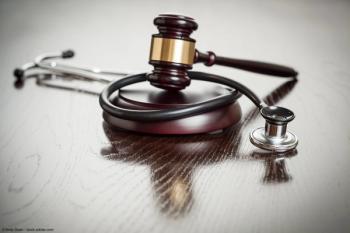
- Vol 50 No 10
- Volume 50
- Issue 10
What physicians should know about apologizing to patients
Apology laws limit the admissibility of apologetic statements.
Unanticipated negative outcomes in medical care are unavoidable. When they occur, clinicians often want to apologize or express sympathy to patients and their families, even if the outcome was not their fault. At the same time, they are cognizant that such statements may be used against them in a medical malpractice suit and thus may choose to err on the side of caution and refrain from uttering anything that bears a resemblance to an apology.
However, apologies and shows of sympathy are important instances of human interaction. Especially in a doctor-patient relationship, the parties need to know that they can trust one another. Health care providers often have legal and ethical duties to disclose certain conditions to patients, even if the condition came about due to an error of theirs. Thus, they should not withhold information for fear that their statements may be used against them.
Fortunately, most US legislatures have recognized these competing interests and, in an attempt to strike a balance, have enacted statutes commonly referred to as apology laws.
What are apology laws?
These statutes limit the admissibility of apologetic statements made by medical professionals, allowing them to show sympathy or remorse and to directly express regret without fear of legal jeopardy.
Currently, 39 states and the District of Columbia have enacted full or partial apology laws. Full laws protect all admissions of fault, whereas partial laws protect only expressions of regret. Ohio’s apology law is an example of the former. It protects “all statements, affirmations, gestures, or conduct expressing apology, sympathy, commiseration, condolence, compassion, error, fault, or a general sense of benevolence.” Because this type of statute offers broad protection, it makes open communication possible.
Under partial apology laws, on the other hand, apologies that admit fault are admissible in court, and apologies that don’t are not. For instance, Nebraska’s law protects “any and all statements, affirmations, gestures, or conduct expressing apology, sympathy, commiseration, condolence, compassion, or a general sense of benevolence” but not those statements expressing “error” or “fault.” Statutes like Nebraska’s protect statements like “I’m sorry the surgery didn’t go as planned.” However, if a surgeon were to say, “I’m sorry the procedure didn’t go as planned because I cut a nerve,” the admission of cutting a nerve would be admissible.
What counts as an apology?
Determining whether a state has a full or a partial law is the first, and easy, step. Determining what constitutes an “apology” or an expression of “condolence” or “benevolence” is far more difficult. It often involves complex statutory interpretation and is frequently litigated.
The term apology itself can create confusion. Merriam-Webster defines it as “an admission of error or discourtesy accompanied by an expression of regret.” Thus, an apology both admits error and expresses regret. Even though they contain the word apology, partial apology laws do not fully protect an apology, as the word is defined, because they don’t exempt admissions of error. Similarly, interpreting what counts as an expression of “condolence,” “benevolence,” or any other characterization used in these laws may be difficult and need to be determined case by case.
Conclusion
Although it is important to connect with patients on a human level, physicians must be aware of the danger that expressing remorse or sympathy may pose. Apology laws seek to find a balance between honesty and liability. Because they vary significantly from state to state and can be further modified by court decisions, individuals who have questions about their scope and/or function should consult an attorney in their jurisdiction.
Articles in this issue
over 3 years ago
How to understand Medicare from the patient perspectiveover 3 years ago
Pushing past the pandemic’s impact on prostate cancer screeningNewsletter
Stay current with the latest urology news and practice-changing insights — sign up now for the essential updates every urologist needs.






